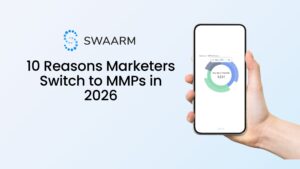Why we need more women founders
As an Indian female entrepreneur in tech, Yogeeta brings a unique perspective on career development, mentorship, and entrepreneurship strategies for women in the industry. She leverages her authority in the industry to advocate for women in IT and business leadership and strives to expand career opportunities for young people.
In the following interview by Jerome Knyszewski for Authority Magazine, she shares her insights, experiences, and her views on how women should be empowered to feel confident in becoming founders themselves.

Thank you so much for doing this with us! Before we dig in, our readers would like to get to know you a bit more. Can you tell us a bit about your “backstory”? What led you to this particular career path?
As a kid, I was always fascinated by technology. I always loved to spend time reading and exploring new gadgets and innovations that were impacting our day-to-day lives in various ways. At the age of 10, I used to make my own electronic circuits by soldering resistors and capacitors on PCBs (Printed Circuit Boards). I still remember my mother’s astonishment after receiving her anniversary present, which was a new phone, in several pieces because I went looking for the PCBs inside, oops! This curiosity and fascination were the reasons that I pursued my bachelor’s in computer engineering and started working in a multinational consultancy building products that solve business problems. I went further building on it with my dual master’s in engineering and Business Administration and since then I have spent my career building teams and products that challenge me each day on the axes of technology and innovation.
Can you share the most interesting story that happened to you since you began your career?
Well, a very funny incident that happened at the beginning of my startup career was when I was interviewing with a new aptitude test software and I was the first candidate they used the test on. Although they had done quality checks for the German version of the test, the English version of the test had an issue where all decimal and comma separators were mixed up (due to the differences in the metric system representations). This led to me getting all my mathematical answers wrong despite them being basic and within my area of expertise due to my background in Engineering. Thankfully, HR was kind enough to ask me for my feedback about the test and was open enough to see my input as objective feedback and not as an excuse from a failed candidate. This open mindset was a definite winner for me, and I wanted to work for the company after this episode. My performance from the other sections of the aptitude test was considered and the mathematical questions were disregarded, we moved further with the interview process, I got the job and thus began the “Startup Chapter” in my life. I remember this incident today as something that started off so negative that turned out to be so positive in the end, just because someone with the decision-making power had an open mindset.
Can you share a story about the funniest mistake you made when you were first starting? Can you tell us what lesson you learned from that?
Although I come from a very progressive family in terms of equal opportunities for girls, I grew up very close to my extended family where all my immediate cousins were male and therefore, I was never shy of a fight to get what I wanted, if need be. Also, during my upbringing, awareness around gender bias at workplaces had been gaining some traction with researchers, authors tiptoeing around the topic. So, imagine me starting fresh out of university in a cutthroat consultancy environment, being influenced by all the external data points. I went all guns-a-blazing at even the slightest hint of gender inequality. I learned soon that I was overcorrecting and needed to baseline things with my own experiences. My mentors there helped me take a more balanced and rational approach and that was a tremendous learning experience for me.
None of us are able to achieve success without some help along the way. Is there a particular person who you are grateful towards who helped get you to where you are? Can you share a story about that?
Absolutely. I have been super lucky to have not just one but a few people who have played pivotal roles in my journey. My product journey in Berlin began with my manager Orietta (former COO of the company where I started), who introduced me to startup life and said, “you like building tech products, go ahead and do that.” She provided me with the liberty, the mentorship, the guidance, and the visibility that helped me get recognized and opened up several opportunities for me. This is when Sven, our CEO then, noticed my work and thrust me on a treadmill of responsibilities that grew my career and confidence in leaps and bounds. Prior to founding Swaarm, I was working as CPO for one of Sven’s ventures and I am grateful to have gotten all the valuable exposure there.
Is there a particular book that made a significant impact on you? Can you share a story or explain why it resonated with you so much?
Yes, I loved “Lean In” by Sheryl Sandberg. In one of the chapters, she talks about how a team of women who had well-deserved rights to have seats at the table, just felt like imposters and stayed back while their esteemed male counterparts comfortably eased in. She elaborates on the studies and science of “Imposter Syndrome” being more prevalent in women and this is certainly something that I have also experienced strongly in my teams. I have seen women with better performance reviews than their male counterparts doubting if they would be retained or fired because they thought they were not good enough. This thinking certainly holds us back tremendously as when we aren’t trusting ourselves, why would others trust us.
Do you have a favorite “Life Lesson Quote”? Do you have a story about how that was relevant in your life or your work?
I am a strong believer in the philosophy of “Charity Begins at Home.” This is something that has kept me grounded throughout my life and has ensured that, before I am going out to change the world, I am making sure that my own backyard isn’t reclusive. This philosophy has inspired me to invest heavily in hiring, training, and mentoring women in my teams to grow them as leaders who can then go on to take leadership roles and not be afraid of founding their own companies.
How have you used your success to make the world a better place?
To be very honest, I certainly don’t think I am doing as much as I would want to. Apart from being associated with a couple of orphanages for girls, most of my time is being spent on mentoring my teams to help facilitate their growth. However, I do hold several green initiatives close to my heart and I am extremely keen on contributing there.
Ok, thank you for that. Let’s now jump to the primary focus of our interview. According to this EY report, only about 20 percent of funded companies have women founders. This reflects great historical progress, but it also shows that more work still has to be done to empower women to create companies. In your opinion and experience, what is currently holding back women from founding companies?
I think there are several things playing largely into holding back women from being founders. It starts with their own mindset of constant doubt due to lack of recognition and trust from leadership and management. This doesn’t give many women the confidence that they can go ahead and do something on their own. However, all these are not just workplace issues but issues at the level of social norms and mindsets. There is a certain degree of ingrained expectation (which women have towards themselves as well) to be able to play a certain role in society. This doesn’t facilitate the overall mindset to evolve towards a structure that is truly inclusive and equal but instead forces us to walk with crutches that are tied to age-old behaviors.
Can you share with our readers what you are doing to help empower women to become founders?
As I am a strong believer in the philosophy of “Charity Begins at Home”, most of my work towards women empowerment is focused on my company. Together with my management team, I have worked on creating a culture where we not only hire women in key positions, but also groom, mentor, and recognize them so that they feel confident to become founders themselves at some point.
This might be intuitive to you, but I think it will be helpful to spell this out. Can you share a few reasons why more women should become founders?
It’s high time that we instill gender equality in business. Various studies and research have already proven how women can be better at several things compared to their male counterparts, but we don’t even have to go that far. Even when we just consider the genders to be equal, in my opinion, it would already be enough to foster balance and inclusiveness in the world.
Ok super. Here is the main question of our interview. Can you please share 5 things that can be done or should be done to help empower more women to become founders? If you can, please share an example or story for each.
- Tax discounts for startups that are founded by women to draw more venture capital money there.
- Entrepreneurship programs to kickstart founder journeys for women within existing companies. This will provide/act as a good transitory phase where the leap to being a founder is going to feel more controlled and manageable.
- Creating awareness on how women can “Have it all” or “Do it all” is not the right mindset and hence shouldn’t be the expectation in society. Women should have the flexibility to choose their form of life without being judged against the conventional roles of what each gender is “supposed” to do.
- In planning for the future, all management positions that are currently held by women should first look at potential women successors to maintain diversity at the top. The law about “Women’s Quota” (Frauenquote) in Germany is a step in that direction, which reserves 30% of management seats for women, but I really think it’s time for us to not play conservative anymore and really push for equal distribution, a 50–50% split at all levels.
- Promoting products and apps where we put women in charge (some dating apps are doing this, but this should be much more than just something for dating and relationships). The aim here is to make it a habit for women to take decisions and be in charge. These small day-to-day habits are then going to go farther in making women feel in control which will then help boost their confidence and make leadership come more naturally to them also in business settings.
You are a person of great influence. If you could inspire a movement that would bring the most amount of good for the greatest number of people, what would that be? You never know what your idea can trigger.
I would like to create a movement where we nominate three women we have worked with and celebrate the great work they have done. This would be to create a sense of visibility and appreciation to break down the walls of self-doubt and insecurity.
We are very blessed that some very prominent names in Business, VC funding, sports, and entertainment read this column. Is there a person in the world, or in the US with whom you would love to have a private breakfast or lunch with, and why? He or she might just see this if we tag them.
I have always been a big fan of Sheryl Sandberg and her work on creating awareness on the topic of female leadership and the inhibitions there. I would love to pick her brain on what her current thoughts are on the topic, and what she thinks needs to be done now to see real progress of increasing women in leadership over the next five years.
Yogeeta is an expat based in Europe’s start-up capital of Berlin. Over 10 years, Yogeeta has combined her strong technical engineering background and business acumen to accelerate her career path into leadership roles at HERE (a Nokia company), Ocono, Crobo, TATA Consultancy Services, and WeQ Global, as well as entrepreneurship in co-founding Swaarm. She developed various tech products before launching her latest product, a fintech solution that was used by 25,000 banks in Asia.
For her contributions in the field of female leadership, she was nominated for the Digital Female Leader Award in 2017, hosted by Women in Digital. As a believer in social responsibility, Yogeeta also helps orphanages in developing countries.
This interview was conducted by Jerome Knyszewski and was originally published by Authority Magazine on May 7th, 2021.
If you found this article interesting, feel free to check out our International Women’s Day 2022 blog post featuring four leading women from the digital marketing industry and what they suggest on how women can break the bias.



